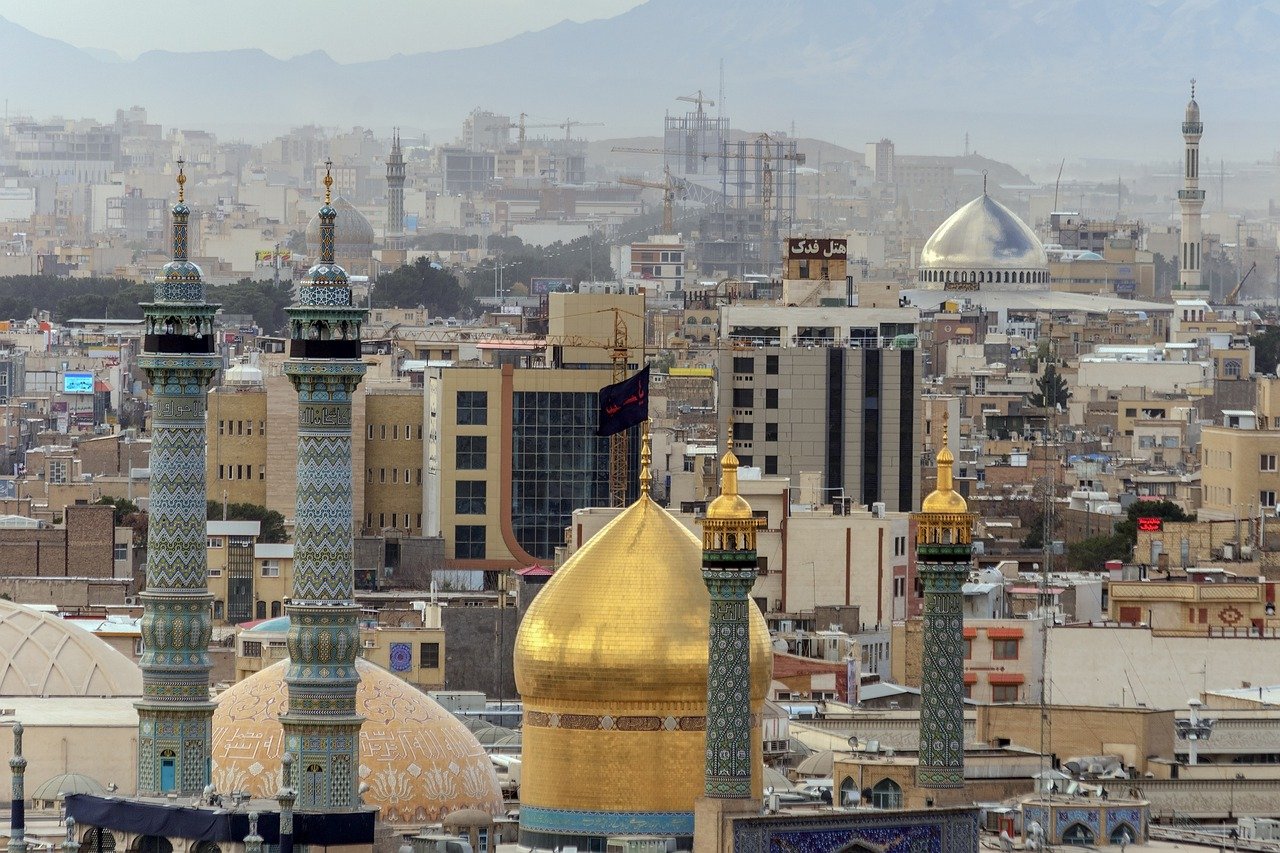Next month, Iranians will head to the polls for the country’s 13th presidential elections. The polls take place at a critical juncture for Iran. Years of growing isolation due to the government’s nuclear program has resulted in all but economic collapse leaving the country’s future in serious question.
A glimmer of hope was achieved in 2015 with the signing of the Joint Comprehensive Plan of Action (JCPOA), a multilateral treaty that relieved Iran from sanctions imposed by the United States and the European Union in return for guarantees that nuclear activities would be curtailed. The deal, which took years to codify, was essentially put to an end in 2018 when then President Donald Trump removed the U.S. government from the treaty. From Iran’s perspective, the most important consequence of Trump reneging on JCPOA was the reactivation of severe sanctions on the country, affecting its most vital infrastructure and cash generating industries. The oil and energy divisions, the nation’s single biggest revenue generator for both the public and private sector, has plummeted. The average barrel per day output (bpd) averaged a mere 1.9 million over the months of 2020, representing only half the production that took place prior to the introduction of sanctions.
Since then, Iran’s economic situation has gone from bad to worse.
The Iranian rial has lost about half of its value over the past two years, making the acquisition of vital necessities nearly impossible for much of the population. Further deteriorating Iran’s monetary situation is the ever increasing inflation the country has experienced over the recent period. In the past three years alone, inflation has gone up no less than fifty percent, making even government social safety nets barely effective in keeping citizens out of dire poverty.
Unemployment has been on a steep rise as well. By the end of 2020, the percentage of Iran’s labor force left without a job had reached sixteen percent. Reports of these numbers contracting have been met with extreme skepticism, and if anything have been taken as indicators of further contraction of Iranian markets. Today, it is estimated that six million Iranians are out of work. Exacerbating the economic death spiral has been the fallout from the COVID-19 pandemic. Iran has been hit exceedingly hard by the virus, with average death rates far exceeding neighboring countries. According to international media, Iran’s corona crisis quickly deteriorated into a disaster in mid-2020, due to a combination of poor governance, inept health policy, and disinformation–sometimes involving outright censorship of vital health related information. This has turned Iran’s crisis into what some economists have dubbed a “double-edged sword” that has wounded the society deeper than other countries. To make matters worse, the population sees no improvement on the horizon for its COVID-19 catastrophe. By its own admission, the government has not succeeded in its vaccine drive, with only 0.3 percent of citizens having received any vaccine. According to an IMF report,the Persian nation is expected to vaccinate a significant portion of its population by mid-2022.
In the face of this ever growing crisis, the government seems powerless to effect change. With the national debt reaching a whopping $254 billion, amounting to some two thirds of total GDP, there seems clear the regime’s model for change has failed.
With the state of the nation’s welfare being the central issue in the upcoming elections, one candidate alone is speaking the language of reform.
Mohsen Rezaee is no newcomer to Iranian politics. A long-time commander in the regime’s Revolutionary Guard Corps (IRGC), Rezaee has made a name for himself over the years a level headed pragmatist despite his conservative credentials. Rezaee’s moderate approach is mostly known in regards to his policies on international relations. He has publicly taken a more practical stance on resolving the nuclear deal with the United States and Europe, shunning the direction of many of his colleagues whom he sees as tainted by ideological considerations. But beyond diplomatic issues, Rezaee has long advocated reform in many areas of Iranian governance, especially when it comes to Iran’s economy. Back in 2012, when the country first faced the prospect of heavy sanctions initiated by the United States, Rezaee, already a prominent MP at the time, campaigned strongly for diversifying Iran’s economy. Rezaee’s knowledge of Iran’s economic challenges is first hand. For years he served as chair of the commission for macroeconomics and commerce. He also holds a PhD in Economics from Tehran University.
As Rezaee put it, his vision is to create “a new economic system” and to “renovate Iran’s economy” over a two year period. The plan calls for strengthening domestic industry, cutting off reliance on foreign supply chains, and creating legal and tax incentives to boost production levels at home. “This is not going to be an austerity economy nor it will it be an underground economy”, saidRezaee, “but an economy that will be within [recognized] economic theories to address conditions under sanctions.” Perhaps above all, the former IRGC general calls for limiting Iran’s reliance on gas and oil, a step the regime has sought for decades but has never implemented. “If we had not faced sanctions, we would never have thought of [reducing our dependence on] oil,” saidRezaee. “Sanctions are dragging us in that direction.”
Dealing with a new American administration, Iran finds itself in unique position, one in which its citizens are looking for substantive change and a shift from ideologically driven policies. Mohsen Rezaee, with his track record of unabashed pragmatism, should put him squarely on the radar of not just Iran’s population, but leaders around the world.



 Bitcoin
Bitcoin  Ethereum
Ethereum  Tether
Tether  XRP
XRP  Solana
Solana  USDC
USDC  TRON
TRON  Cardano
Cardano  Lido Staked Ether
Lido Staked Ether  Avalanche
Avalanche  Toncoin
Toncoin